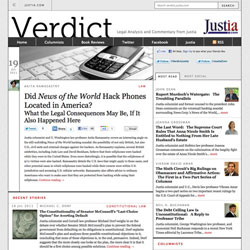 California State Senator Loni Hancock (D-Alameda) recently introduced Senate Bill 490, which seeks to abolish the death penalty in California. This is the first time that the California Legislature has considered the issue of capital punishment since the current statute was enacted in 1978.
California State Senator Loni Hancock (D-Alameda) recently introduced Senate Bill 490, which seeks to abolish the death penalty in California. This is the first time that the California Legislature has considered the issue of capital punishment since the current statute was enacted in 1978.
After Gregg vs. Georgia reinstated capital punishment nationwide, California voters approved the current death penalty law in a referendum. To amend that law, SB 490 must be approved by the voters because state law mandates that referendums can only be repealed at the ballot box.
If California voters approve SB 490, first-degree murder with one or more special circumstances will be punished by life without the possibility of parole. The death penalty option would no longer be available. Additionally, the state would halt future executions and commute all existing death sentences to life without parole.
The impetus for this effort comes from a Loyola of Los Angeles Law Review article authored by U.S. Court of Appeals for the Ninth Circuit Senior Judge Arthur L. Alarcon and Loyola Law School Los Angeles Adjunct Professor of Law Paula M. Mitchell. Their study contended that the abolition of capital punishment in California could save the state $1 billion dollars every five or six years. The study also found that “the state’s 714 death row prisoners cost $184 million more per year than those sentenced to life in prison without the possibility of parole.”
Don Heller, the author of the original enacting initiative, supports Senator Hancock’s bill. Heller has since come to “fervently believe” that capital punishment should be abolished. He says that when the law was drafted in 1978, his office grossly underestimated the costs to the state. He argues that each execution since the death penalty was reinstated under that law has cost the state $330 million, and it’s simply not worth it. It should be noted that the American Law Institute, which promulgates the Model Penal Code (upon which many states base their own statutes), has also reversed its position, taking capital punishment out of the model code.
 As more and more information becomes increasingly accessible, our attention spans grow ever shorter. Several decades ago, one needed only to turn to the newspaper, radio, or television for all the news someone else deemed was relevant to you and your life. Now, with the Internet, blogs, email and RSS feeds, we no longer rely on others to decide what information we should be processing, for better and for worse.
As more and more information becomes increasingly accessible, our attention spans grow ever shorter. Several decades ago, one needed only to turn to the newspaper, radio, or television for all the news someone else deemed was relevant to you and your life. Now, with the Internet, blogs, email and RSS feeds, we no longer rely on others to decide what information we should be processing, for better and for worse.
 I wanted to make sure that all of our readers are aware that Justia recently launched the new legal commentary site
I wanted to make sure that all of our readers are aware that Justia recently launched the new legal commentary site 
 California State Senator
California State Senator  Earlier this month, I wrote about Amazon
Earlier this month, I wrote about Amazon 



 All of us at Justia – human and pup alike – would like to wish everyone a
All of us at Justia – human and pup alike – would like to wish everyone a